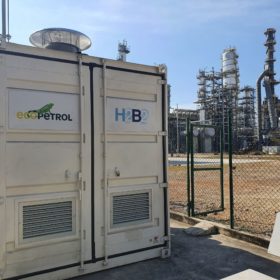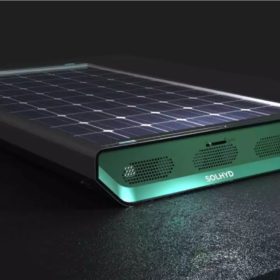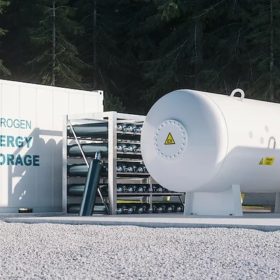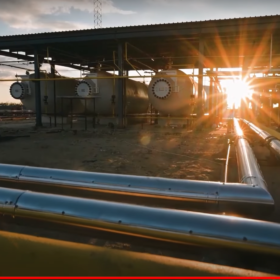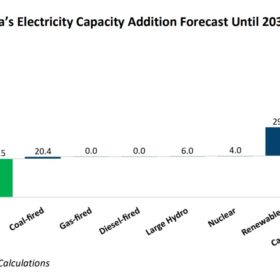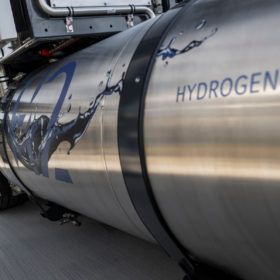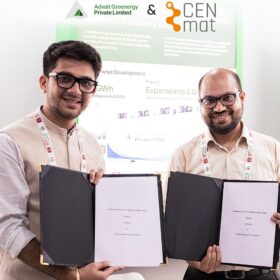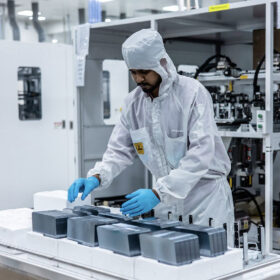ReNew Power to build $8 billion green hydrogen plant in Egypt
Developer ReNew Power has signed an agreement with the Egyptian Government to establish a green hydrogen plant in the Suez Canal Economic Zone. The $8 billion project will produce 220,000 tons of green hydrogen per year.
GR Promoter Group forms green hydrogen JV with Spain’s H2B2
India’s GR Promoter Group has entered the green hydrogen market in a joint venture with Spanish hydrogen technology solutions provider H2B2. The JV will manufacture water-based electrolyzers and develop green hydrogen production plants based on off-taker agreements.
Hydrogen-producing rooftop solar panels nearing commercialization
KU Leuven researchers have developed rooftop panels that capture both solar power and water from the air. Like traditional PV modules, hydrogen panels are also connected, but via gas tubes instead of electric cables. The researchers are now preparing to bring the tech to the mass market via a spinoff company.
Erisha partners Germany’s Greenbox for green hydrogen business
Erisha E Mobility has formed a joint venture with Greenbox to manufacture a range of green hydrogen solutions by leveraging technologies developed by Greenbox.
Acme to invest $6.3 billion in green hydrogen, ammonia project in Karnataka
The renewables developer will build a 1.2 mtpa green hydrogen and green ammonia project with integrated RE generation capacity in the state.
ABC Cleantech to invest $6 billion in setting up green hydrogen, ammonia facility in Karnataka
ABC Cleantech, a part of Axis Energy Group, will invest around $6 billion (INR 50,000 crore) to build a green hydrogen and ammonia plant, integrated with 5 GW of renewable energy capacity, in the Indian state of Karnataka.
NTPC, Mitsubishi sign MoU for hydrogen co-firing in Auraiya gas power plant
NTPC and Japan’s Mitsubishi Heavy Industries (MHI) have signed an agreement for hydrogen co-firing in MHI’s gas turbines installed at NTPC Auraiya gas power plant in Uttar Pradesh. The two companies will collaborate to carry out the study and identify key actions for introducing hydrogen co-firing blended with natural gas.
India expected to annually deploy 35-40 GW of renewables until FY2029-30 end
Ambitious government targets and commitments by both private and state-owned companies will propel renewable energy installations.
Hydrogen to play limited role in building energy supply
How much hydrogen is actually needed? Several German research institutes have examined 40 energy scenarios for hydrogen ramp-up and found that 15 million GWh of hydrogen will be needed worldwide by 2050.
KKR, Hero Group to invest $450 million in Hero Future Energies
The investment will support Hero Future Energies in expanding its renewable energy capacity and capabilities across the solar, wind, battery storage, and green hydrogen technologies.

